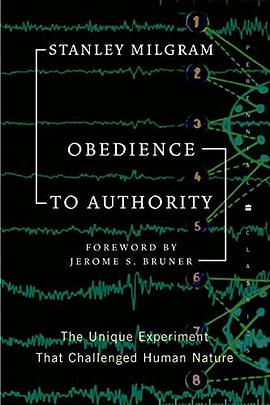Obedience to Authority
内容简介
The Milgram experiment was a series of seminal social psychology experiments conducted by Yale University psychologist Stanley Milgram, which measured the willingness of study participants to obey an authority figure who instructed them to perform acts that conflicted with their personal conscience. Milgram first described his research in 1963 in an article published in the Journal of Abnormal and Social Psychology,and later discussed his findings in greater depth in his 1974 book, Obedience to Authority: An Experimental View.
The experiments began in July 1961, three months after the start of the trial of Nazi war criminal Adolf Eichmann in Jerusalem. Milgram devised the experiments to answer this question: "Could it be that Eichmann and his million accomplices in the Holocaust were just following orders? Could we call them all accomplices?"
......(更多)
作者简介
Dr. Stanley Milgram (August 15, 1933 – December 20, 1984) was a social psychologist at Yale University, Harvard University and the City University of New York. While at Harvard, he conducted the small-world experiment (the source of the six degrees of separation concept), and while at Yale, he conducted the Milgram experiment on obedience to authority. He also introduced the concept of familiar strangers.
......(更多)
目录
......(更多)
读书文摘
9. 服从的表现形式,不只是相反意愿或理念的剧烈冲突对抗,更是深植于我们生活的方方面面。我们的社会关系、事业野心以及日常工作,都是服从的影响因素。我们通常不会看到英雄人物出现行为和道德的冲突,也很少看到病态的攻击性人物利用他的权力位置作恶。我们经常看到的情景是:一个官员做着他分内的工作,努力打造出称职胜任的印象。
服从存在这样一个核心事实:一个人将自己看做执行另一个人愿望的工具,因此,他认为自己无需对其所作所为负责。一旦出现这种重要的观点转变,服从所有的重要特征就会随之而来。
......(更多)






